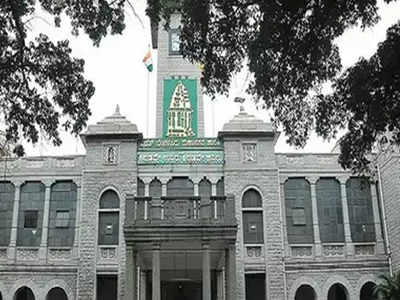The Times of India 19.03.2013
Lucknow Municipal Corporation cancels lease to prevent auction of Uptron’s property
(IFCI) to a Lucknow-based private builder has taken a curious turn with
the Lucknow Municipal Corporation (LMC) cancelling the 30-year lease
deed granted to Uptron in 1985. The cancellation which comes two years
before 2015 (when the lease was to expire), has technically brought the
property back in LMC’s fold. The municipal body, while objecting to
further sale of property, has also decided to move the high court.
The cancellation of the lease agreement comes a fortnight after IFCI
sold off the Uptron premises spread over an area of around 5.5 acres
near Gomti barrage to a private builder, Shalimar Corp Limited. The IFCI
had proceeded to sell the property on March 1. It also decided to sell
off nine acres of land on Dewa Road. This land belonging to UP State
Industrial Development Corporation was also leased out to Uptron in mid
1980s. Sources in UPSIDC said that the corporation is yet to object to
the sale of this property.
The IFCI, however, informed the LMC
on March 11. Speaking to TOI on Monday, municipal commissioner, RK
Singh said that the LMC received the letter on March 15. “The lease deed
has been cancelled and hence technically the property comes back to LMC
under the Municipal Act,” Singh said and added that they would be
moving the high court in any case. The municipal commissioner said that
they have also asked the IT department to stop the ‘unauthorised sale’
of property.
“Even if the lease was not cancelled, the property
would have come back to LMC in another two years,” the municipal
commissioner said. As per the agreement, LMC had leased out the land to
Uptron for “equitable use”. The behemoth entity, however, mortgaged the
property in 1987 to lift around Rs 10 crore from IFCI and other
financial institutions. This was, however, an unsecured loan for which
the state government did not give any guarantee.
At the same
time, liabilities continued to mount on UPTRON. By 2010, the total
liabilities had piled up to more than Rs 200 crore even as Board for
Industrial and Financial Restructuring (BIFR) intervened. Principal
secretary IT, Jeevesh Nandan said that the liabilities include Rs 70
crore as employees’ salary, Rs 45 crore as trade tax and Rs 10 crore as
provident fund. Many employees have been adjusted in other departments,
while there are around 50 employees who are a payroll of Uptron. Nandan
said that the financial institution had even agreed for one-time
settlement scheme under which Rs 32.7 crore were to be paid to the IFCI.
“The settlement had been done,” he maintained.
However, things
took a twist on August 2, 2012, when IFCI slapped a demand notice on
Uptron, seeking repayment of Rs 140,48,74,218 within a stipulated time
of 60 days from the date of the issue of the notice. The outstanding
on the company was calculated on July 31, 2012. When Uptron failed to
comply with the notice, the financial institution toughened its stand
and seized nearly 6 acre of its land in Jugauli in Gomtinagar under
section 13(4) of the Securitization Act, 2002.
The IFCI in its
seizure notice had said that Uptron defaulted on the payment of more
than Rs 140 crore with further interest on contractual rates till
payment. The institution also cautioned the state-owned electronics
company and the general public against dealing with the property. “Any
such dealing will be subjected to the charge of IFCI for over Rs 140
crore,” the notice, which was pasted on Uptron building in Gomtinagar,
said.
Sources in the department of electronics said that Uptron
had even managed to avail the no-objection certificate (NOC) from the
LMC while mortgaging the property with the financial institution. This
raises a whiff of suspicion if LMC was in the know-how of the sale.
“This is a matter of investigation. The LMC was not in the loop when the
premises were auctioned to the highest bidder. At least the LMC should
have been informed about this,” said Lucknow mayor, Dinesh Sharma.
Set up in 1979, Uptron was a leading manufacturer in early 80s and its
television sets were popular all over the country. But, unprofessional
management turned it into a loss-making entity within a span of 10
years.

